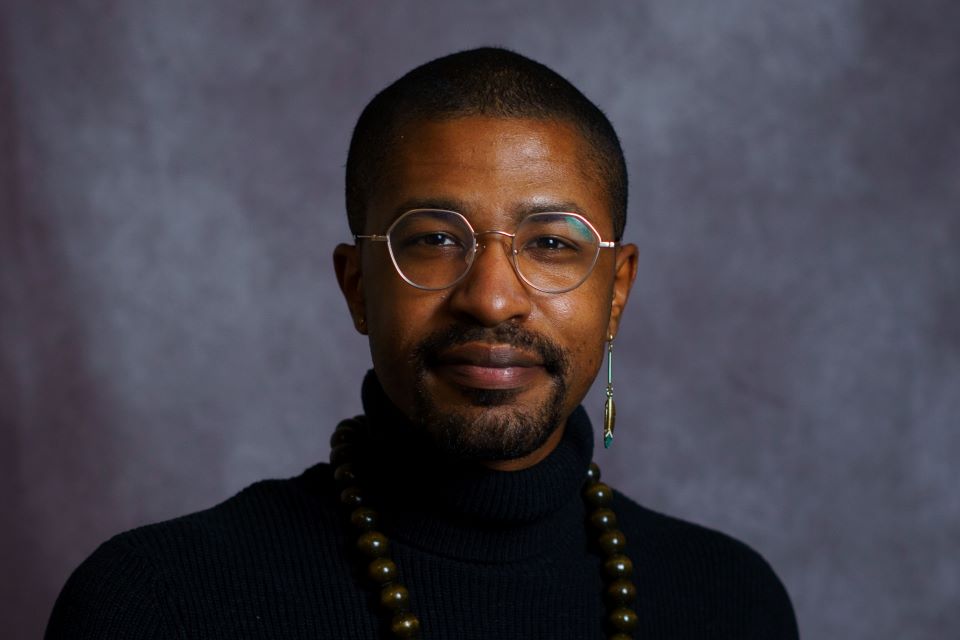Neuroscience Student Finds Mentorship and Shared Research Interests in Sengupta Lab

Photo Credit: Sayan Biswas
February 3, 2023
Graduate School of Arts and Sciences
It was one tiny, microscopic organism that began Tyler Hill’s journey to Brandeis.
Tyler, a doctoral candidate in the Neuroscience program, first considered attending Brandeis for his graduate studies while researching C. elegans – a type of worm measuring just one millimeter.
Tyler’s research with the C. elegans organism began when he was a master’s student at Kennesaw State University in Georgia. Originally from Cleveland, Tyler had attended Morehouse College for his undergraduate studies and decided to pursue a master’s degree upon graduation to gain more research experience. During this time, Tyler became familiar with Brandeis professor, Dr. Piali Sengupta, and her work with C. elegans.
When it was time to apply to PhD programs, Tyler was looking for an environment that valued basic science and supported students exploring natural neuroscience processes. He was also searching for a program that would enable him to continue working with C. elegans. The PhD program in Neuroscience at Brandeis was an obvious choice.
In the Sengupta Lab, Tyler focuses on how temperature changes the behavior of simple organisms. The C. elegans nematode, which has 302 neurons, uses information about its environment to make decisions. Tyler changes the temperature of that environment to watch how the C. elegans’ neurons fire and behaviors change. He uses confocal microscopy and genetically encoded fluorescent proteins to conduct experiments in collaboration with the other PhD students and postdoctoral fellows in the lab. Tyler spends most days with other graduate students and postdocs. Feeling comfortable in the lab has been essential to his learning.
Tyler describes Professor Sengupta as an excellent mentor who spends hands-on time with her mentees. In addition to supporting their research, she helps graduate students prepare for presentations, write grants, and gain the academic and professional skills they need to succeed. Tyler says he especially appreciates how Professor Sengupta checked in with him throughout the pandemic to ensure he had the support he needed. He describes others in the program - faculty and students - as “so helpful and open not just to formal collaborations but to teaching.” He explains, “if there is something I need to be taught, I can approach other labs and people will help and are open. They get as excited about what you are doing even if it doesn’t lead to a formal collaboration such as a paper or a grant. People love to do science and love to be helpful. This is an incredible place to learn to do science.”
Tyler plans to move into neuro-ethology after completing his PhD in order to continue exploring the neural basis of behavior. He encourages prospective students to learn about the mentorship and learning style of the programs and labs they are considering for their doctoral studies. He also encourages prospective students to be open to labs that do something a little different than what they are planning when they start graduate school. Gaining skills and being able to relate their interests to new skills is essential, and especially so if the learning style is a good fit.






